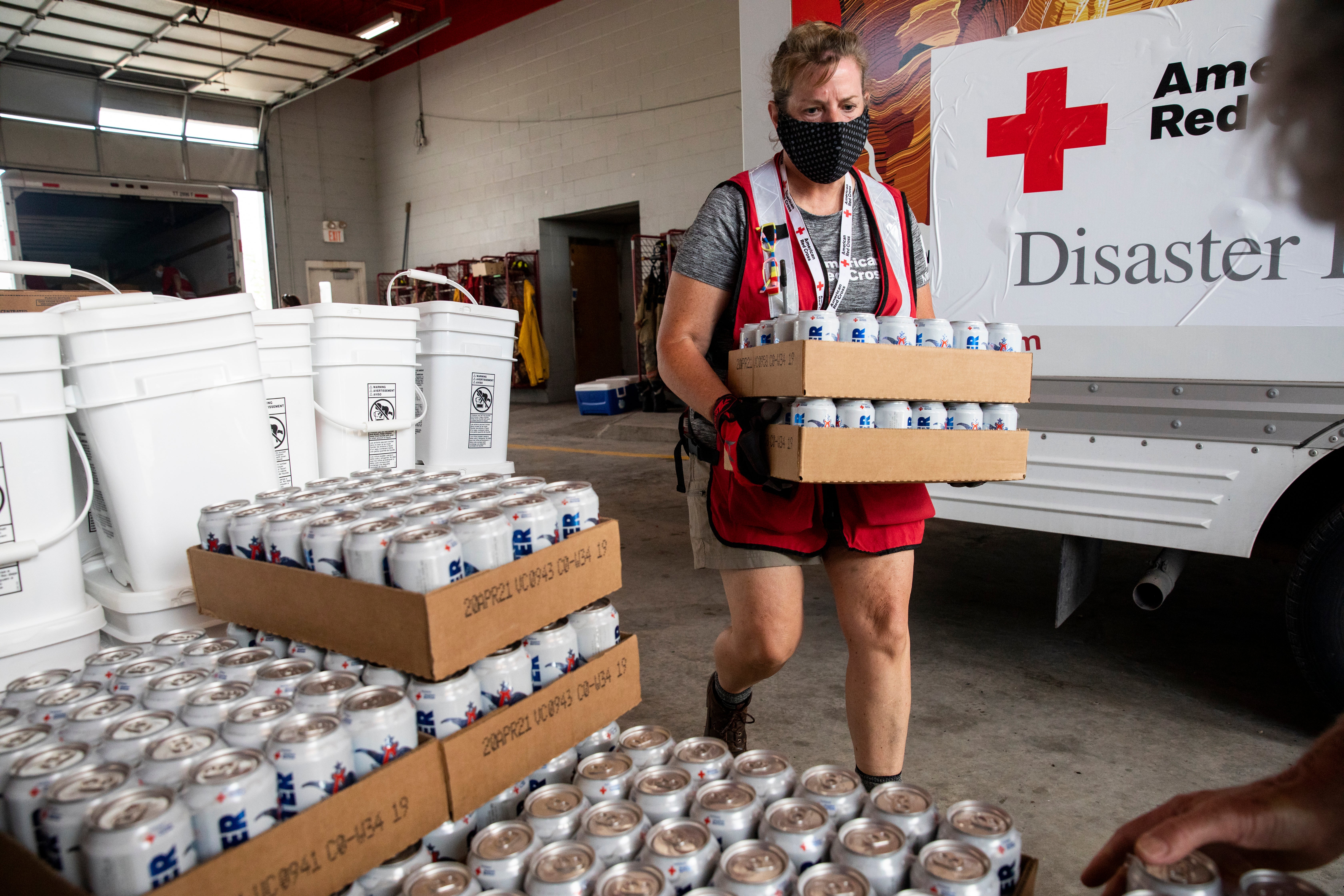Local volunteers needed for busy hurricane season
Published 12:05 am Saturday, August 28, 2021

- American Red Cross volunteer Pam Simone unloads water in 2020 at a fire station that would be distributed to people impacted by Hurricane Hanna. (Scott Dalton/American Red Cross)
|
Getting your Trinity Audio player ready...
|
Many weather experts predict a destructive hurricane season this year and the American Red Cross needs volunteers to help. With a storm currently brewing in the Caribbean, there is no better time for Texas residents to make preparations and join the Red Cross to help their communities before, during, and after disasters.
We especially welcome people with bilingual skills, and people from diverse communities to volunteer with us so we can better serve the Gulf Coast of Texas.
“We have an imminent threat to our region right now with the likelihood of a storm hitting in the next few days, and experts report we could see several more storms with winds reaching hurricane strength before the end of disaster season,” said Chester Jourdan, executive director of the Deep East and Southeast chapter. “It’s critical to have a trained, ready volunteer workforce to make sure we can provide disaster relief at a moment’s notice. Please train now to be a Red Cross volunteer and help if the need arises.”
“Volunteering would be the greatest experience of your life. It will be forever changed, and you will never regret it. The rewards are more than any amount of money you could ever be paid; it’s an awesome journey. I am so glad to be in the Red Cross, and to have the opportunity to feel this way,” says Queen Handy, a lead disaster volunteer of 17 years with the Deep East and Southeast chapter.
SHELTER VOLUNTEERS AND HEALTH PROFESSIONALS NEEDED
The Red Cross needs new volunteers to support disaster shelters. Volunteers will help with reception, registration, food distribution, dormitory, information collection and other vital tasks inside disaster shelters. We need hundreds of volunteers across the region as storm projections for the next few months show a high tempo of disasters. Please sign up https://tinyurl.com/3dhpnykt
After most disasters this year, the Red Cross plans to open group shelters. However, in some communities, hotels may be more appropriate if the risk of COVID-19, including the delta variant, is particularly high. The Red Cross will also continue many of the safety precautions implemented in 2020, including masks, health screenings, enhanced cleaning procedures and encouraging social distancing.
The Red Cross also needs volunteers who can work in disaster shelters to address people’s health needs and provide hands-on care in alignment with their professional licensure (registered nurse and licensed practical nurse/licensed vocational nurse). Daily observation and health screening for COVID-19-like illness among shelter residents may also be required. We have both associate and supervisory level opportunities available. If you are an RN, LPN, LVN, APRN, NP, EMT, paramedic, MD/DO or PA with a current and unencumbered license, this position could be right for you. We welcome medical professionals to sign up https://tinyurl.com/3eeat7k2.
DISASTER ACTION TEAM MEMBER
Local Disaster Action Teams provide 24-hour emergency response to local disasters, particularly home fires, ensuring that those affected have access to resources for basic necessities such as food, shelter and clothing. If you are team-oriented and want to help your neighbor, the DAT responder may be just the thing for you.
Last year, the Texas Gulf Coast region provided immediate emergency assistance to 2,129 people after 1,351 home fires and other disasters.
If you want to make a difference and are interested in helping your community should a disaster occur here at home or across the country, please sign up https://tinyurl.com/c4t6um79.
Preparing for hurricane season doesn’t have to be hard, just follow these steps to help make sure your family is ready to either evacuate or hunker down if a storm threatens your community.
- First, create an evacuation plan. Plan what to do in case you are separated from your family during an emergency and if you have to evacuate.
- Build an emergency kit with a gallon of water per person, per day, non-perishable food, a flashlight, battery-powered radio, first aid kit, medications, supplies for infants or pets, a multi-purpose tool, personal hygiene items, copies of important papers, cell phone chargers, extra cash, blankets, maps of the area and emergency contact information.
- Be informed. Find out how local officials will contact you during a disaster and how you will get important information, such as evacuation orders. Download the free Red Cross Emergency app to help keep you and your loved ones safe with real-time alerts, open Red Cross shelter locations and safety advice on hurricanes and other emergencies





